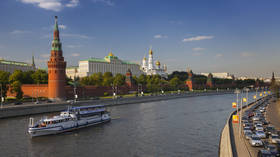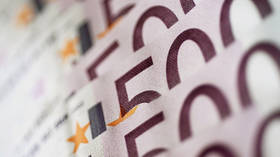
Legal issues and German concerns make the move “difficult,” a Dutch government representative has said

© Getty Images / Jon Hicks
The EU is not ready to transfer frozen Russian assets to Ukraine due to legal issues and concerns from Germany, a Dutch government representative has said.
Geoffrey van Leeuwen, a prime ministerial adviser on foreign affairs and defense, told a national security forum in the US on Thursday that the issue of using frozen Russian assets in Ukraine was “a difficult one,” partly due to German objections.
The EU is not “in principle” against transferring the assets to Ukraine, but any such move must be legally watertight, he stated.
“We are not that far to say that we can do it,” van Leeuwen claimed, adding that “we’re not ready yet to take those assets and give them to Ukraine.”
The EU has frozen assets and reserves belonging to the Russian state worth some €207 billion ($230 billion) since the beginning of Moscow’s military operation in Ukraine.
The European Commission has been attempting to find ways to use the immobilized Russian funds to ‘rebuild’ Ukraine. Among the options is using the interest generated by the assets held in EU financial institutions. European Commission President Ursula von der Leyen said in June that Brussels would prepare a legal proposal on the transfer of Russian assets before the summer break.

Germany, however, warned last month that such a move could carry risks and raise “complex financial and legal questions,” the Financial Times reported.
According to the newspaper, German officials fear that if the EU confiscated frozen Russian money or used the interest it generated, it would set a “precedent for others to pursue, such as Poland’s reparation claims against Berlin for damage during the Second World War.”
Bloomberg reported last week that EU leaders and the European Central Bank were at odds over plans to use profits generated by Russian assets. ECB President Christine Lagarde reportedly warned that a windfall tax could undermine the euro and lead to a re-think among reserve holders.
Moscow has repeatedly described any seizure of its assets by Western governments as theft and illegal under international law.
For more stories on economy & finance visit RT’s business section




